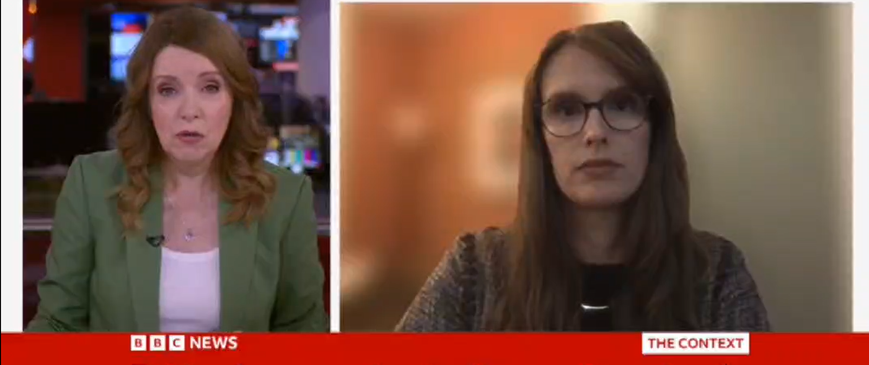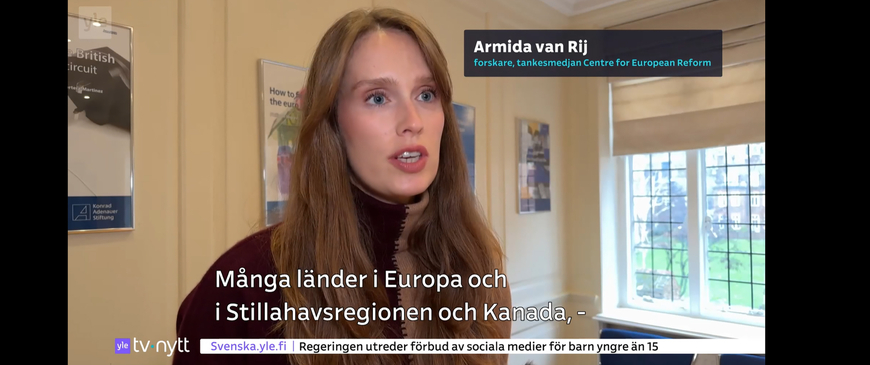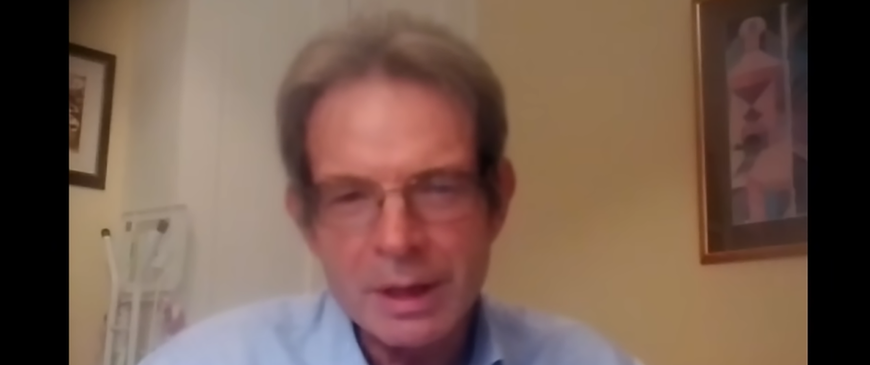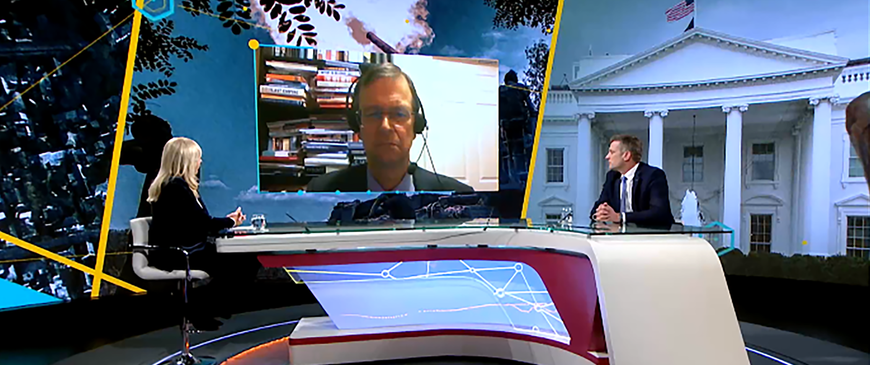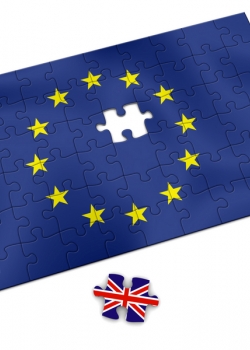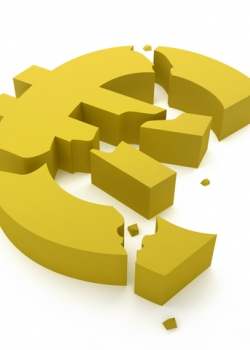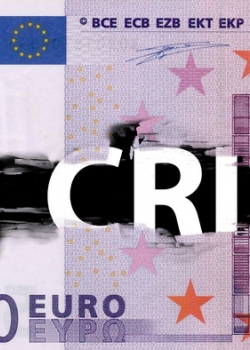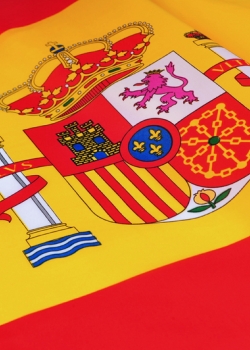Press
Europe's divided leaders grope for summit breakthrough
28 June 2012
The Guardian
"Unless France and Germany can soon agree on a grand bargain, disaster may loom," said Charles Grant, director of the Centre for European Reform.
Why Washington and Moscow want a backroom deal over Syria
28 June 2012
The Guardian
Edward Burke of the CER said "Moscow knows the writing is on the wall for the Assad regime and that its slow demise will likely precipitate an increasingly deadly civil war that will damage Russian interests ...An attempt by Russia to negotiate a political transition should be welcomed. Moscow has made it clear that it future relations are not tied to the power status quo in Damascus."
Alemania entre la espada y la pared para salvar el euro
28 June 2012
BBC Mundo
"La Eurozona está acercándose al momento de todo o nada. O se estimula el crecimiento y se mutualiza la deuda para proteger a los bancos o la situación se deteriorará aún más muy rápidamente", señaló a BBC Mundo Simon Tilford, del think tank con sede en Londres Centre for European Reform (CER).
Britain outside the EU: Switzerland with nukes?
27 June 2012
Reuters
"We are sliding towards the exit without any strategising about what comes afterwards," said Charles Grant, of the CER. "Osborne and Cameron actually want to stay in the EU so I don't think they have a sort of plan B. There is no strategy and the sceptics can't agree on what to do."
NATO condemns Syria over downed Turkish plane
26 June 2012
Reuters
"There is very little appetite from the alliance to undertake what we call a discretionary war," said Clara Marina O'Donnell, a research fellow at the CER.
Cameron's next European 'faux-pas'
26 June 2012
E!Sharp
Britain is now mulling an important decision which, despite being fiddly and legalistic, has profound implications for its own security and for Europe.
Smart reads June 26, 2012
26 June 2012
Financial Times
These were the pieces that got our tongues wagging today: ... Simon Tilford, writing for the Centre for European Reform, on what Germany stands to lose in the eurozone crisis.
Critical week ahead for debt crisis
25 June 2012
NZ Herald
"With the German economy slowing rapidly and investors starting to question the safety of German debt, it is possible the country will change course. But at present it appears that Germany is not for turning," notes Simon Tilford, chief economist at the CER.
Britain - in or out?
25 June 2012
BBC Newsnight
Charles Grant speaks to Newnight about Britain's changing relationship with the EU
Only a Franco-German bargain can save the euro
25 June 2012
The Guardian
Merkel and Hollande don't trust each other, but they must find a way of working together – and the markets may not wait long.
Turkey turns to NATO after Syria downs jet
25 June 2012
Reuters
"Ankara itself has been averse to consider military action against Syria so far. So it is likely that the invocation of Article 4 is designed to put more diplomatic pressure on Assad," said Clara Marina O'Donnell at the CER.
Hollande's pro-growth rhetoric won over France. But what about Merkel?
24 June 2012
The Guardian
As Simon Tilford notes in a report for the CER, Germany seems to have a sense of invulnerability amid the storms around it. "For many Germans, including many senior policymakers, the crisis seems to be someone else's problem," Tilford writes.
'One blood and one destiny?' Yemen's relations with the Gulf Co-operation Council
20 June 2012
London School of Economics & Political Science
For years Yemen has been the poor, neglected relation of the Gulf Cooperation Council (GCC). Long-promised aid commitments from the GCC have not materialized because of concerns over Yemeni absorption capacity.
Eurozone crisis: What steps should be taken to move forward?
20 June 2012
The Voice of Russia
Interview with Simon Tilford – chief economist at the Centre for European Reform coming to us all the way from London.
I think a more deeply integrated financial architecture is possibly a solution. One of the reasons why the crises ran out of control in the eurozone is that bank in...
I think a more deeply integrated financial architecture is possibly a solution. One of the reasons why the crises ran out of control in the eurozone is that bank in...
O efeito dominó que ameaça a Espanha e a zona do euro
19 June 2012
Carta Maior
Em entrevista à Carta Maior, Simon Tilford, economista chefe do Centre for European Reform, defende a necessidade de uma massiva injeção fiscal na eurozona, sem a qual a Espanha terá que pedir um resgate este ano.
France's new leader negotiates to keep promises
17 June 2012
National Public Radio
Charles Grant talks to National Public Radio about Frenco-German relationship.
Continental drift adds to challenge
15 June 2012
The Wall Street Journal
"Domestically, [Ms Merkel] hasn't paid the price for the deepening of the financial crisis," says Simon Tilford, chief economist at CER. "But certainly, she's looking increasingly isolated within the eurozone. ... There was a window of opportunity five to six months ago to forge a consensual relationship with Mario Monti... But Merkel didn't play that so well. ... At what point do they say enough? ... Unless the German position on a number of points shifts considerably, it's inevitable that Spain and Italy will be much more openly critical of the German stance."
Fears of social and political unrest if Greece leaves Euro
15 June 2012
The New York Times
"The last thing the EU wants or needs is a failed state on its borders in a region as combustible as this," said Simon Tilford, chief economist at the CER. "Greece would not be left to its fate because they cannot afford to let a country descend into chaos.
Eurozone braces for Greek election
15 June 2012
Voice of America
However, other economists, such as Simon Tilford of the CER, say Greece is heading for the exit regardless of the election's outcome. "I struggle to see how Greece can stay within the eurozone. I think for that to happen, the country would need ongoing support ... I don't just mean loans, but ongoing transfers of money from elsewhere within the eurozone." ... Economist Tilford says European governments have low expectations.
How Spain's problems got worse in less than a week
15 June 2012
Time
"The European Union has a strong incentive to blame Spain, because that way it can distract attention from the fact that the overall strategy has failed," says Simon Tilford, chief economist at the CER. "There's no doubt that the Spanish government has made mistakes, but it's increasingly being put in an impossibly difficult position. ... The European Central Bank is the only institution that can dispel investor fears, and Rajoy is right to argue that going forward, you need an activist bank that backstops debts at the eurozone level ...

